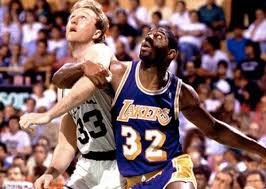Stephen A. Smith on Why Wilt Chamberlain Isn’t Considered the Greatest of All Time: “Bill Russell Was His Biggest Opponent”
**Stephen A. Smith on Why Wilt Chamberlain Isn’t Considered the Greatest of All Time: “Bill Russell Was His Biggest Opponent”**
In the ongoing debate about the greatest basketball players of all time, names like Michael Jordan, LeBron James, and Kobe Bryant are frequently mentioned. However, Wilt Chamberlain, despite his staggering statistics, often finds himself on the fringes of this conversation. Recently, sports commentator Stephen A. Smith offered his perspective on why Chamberlain, who dominated the NBA during the 1960s and early 1970s, isn’t more frequently mentioned as the greatest of all time. According to Smith, one key reason is the presence of Bill Russell, Chamberlain’s biggest rival.
### **A Legendary Rivalry**
Wilt Chamberlain and Bill Russell are often considered two of the greatest centers in NBA history. Chamberlain was known for his extraordinary scoring ability, physical dominance, and impressive records, including his famous 100-point game. However, when it came to winning championships, Russell had the upper hand. Over the course of his career, Russell won 11 NBA championships with the Boston Celtics, while Chamberlain won just two—one with the Philadelphia 76ers and another with the Los Angeles Lakers.
Smith highlighted that despite Chamberlain’s individual accomplishments, his rivalry with Russell is a significant factor in why he isn’t more frequently included in discussions about the greatest player of all time. “Bill Russell was Wilt’s biggest opponent, and in the moments that mattered most, Russell’s teams came out on top,” Smith explained. “In the eyes of many, being the best means winning when it counts, and Russell did that better than anyone.”
### **The Impact of Championships**
In the world of professional sports, championships often serve as a measure of greatness. Michael Jordan’s six NBA titles and LeBron James’ four championships are frequently cited in arguments for their respective places in the G.O.A.T. conversation. For Wilt Chamberlain, his lack of titles compared to Russell is often seen as a mark against his legacy.
Smith noted that while Chamberlain’s individual stats were otherworldly, including averaging over 50 points per game in a season and leading the league in rebounds multiple times, the narrative around his career has been shaped by his inability to win more titles. “Wilt was a statistical marvel, but in a team sport like basketball, winning championships is what defines a career,” Smith said. “Russell’s 11 rings, many of which came at Wilt’s expense, overshadow Wilt’s incredible numbers.”
### **Perception and Legacy**
Smith also touched on the perception of Chamberlain’s career, suggesting that his tendency to focus on individual success may have contributed to his exclusion from the greatest of all-time debates. “Wilt was a dominant force, but he was often seen as more concerned with his stats than with winning,” Smith argued. “Meanwhile, Russell was the ultimate team player, willing to sacrifice his own numbers to win. That difference in mentality is why Russell is remembered as the ultimate winner, while Wilt is remembered for his records.”
Moreover, Smith pointed out that the narratives constructed around players’ careers have a lasting impact on how they are viewed historically. In Chamberlain’s case, the perception that he couldn’t win the big games or consistently outplay Russell in the postseason has colored his legacy. “In sports, it’s not just about what you do; it’s about when you do it,” Smith remarked. “Wilt’s numbers are incredible, but in the biggest moments, Russell had his number.”
### **Conclusion**
In the end, Stephen A. Smith’s comments offer a nuanced explanation for why Wilt Chamberlain, despite his unparalleled stats, isn’t often regarded as the greatest of all time. The rivalry with Bill Russell, Chamberlain’s relative lack of championships, and the perception of his career as more focused on individual success than team achievements all contribute to his place in basketball history. While Chamberlain’s legacy as one of the most dominant players ever is secure, the conversation about the greatest of all time remains centered on those who not only dominated statistically but also consistently won when it mattered most.




Post Comment